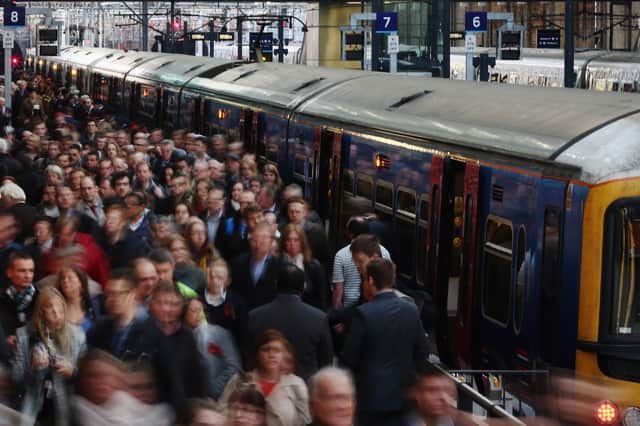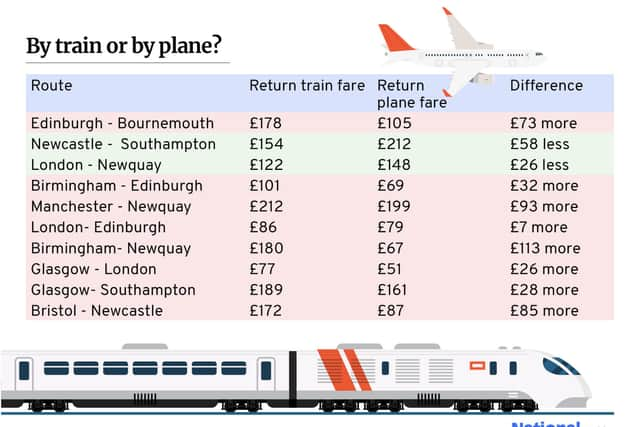Train tickets ‘cost 50% more’ than plane fares - and journey times are much longer too


It is costing Brits 50% more to travel across Great Britain by train compared to plane, research by Which? has found.
A look at train routes across the country has found a staggering difference in price between the two modes of transport - with train fares soaring, despite being a much slower way to get about.


Advertisement
Hide AdAdvertisement
Hide Ad'169% more expensive'
Consumer group Which? compared the carbon footprint of flying versus taking the train on 10 UK routes between 3 and 8 August - including Bristol to Newcastle – with flight prices checked on Skyscanner and Trainline.
Eight of the ten routes worked out as more expensive - with Birmingham to Newquay costing an eye-watering £113 more.
The flight cost £67 and a train journey on the same dates cost £180 – an increase of 169 per cent.
The train route Which? looked at also involved making two changes and, including the return journey, would take more than 10 hours longer than flying in total.
However, the CO2 emissions caused by flying are, on average, six times more than those caused by taking the train.
‘Steps to take to cut train travel costs’
Rory Boland, Which? Travel Editor, said: “As the pandemic continues to cause uncertainty for international travel, many of us are taking holidays closer to home this year.
“Travellers who choose to take the train face significantly higher fares and journey times, putting those who want to lessen their environmental impact at a disadvantage.
“There are steps that people can take to reduce the cost of travelling by train.
“You may be able to make further savings by checking if split-ticketing is an option on your chosen route.”